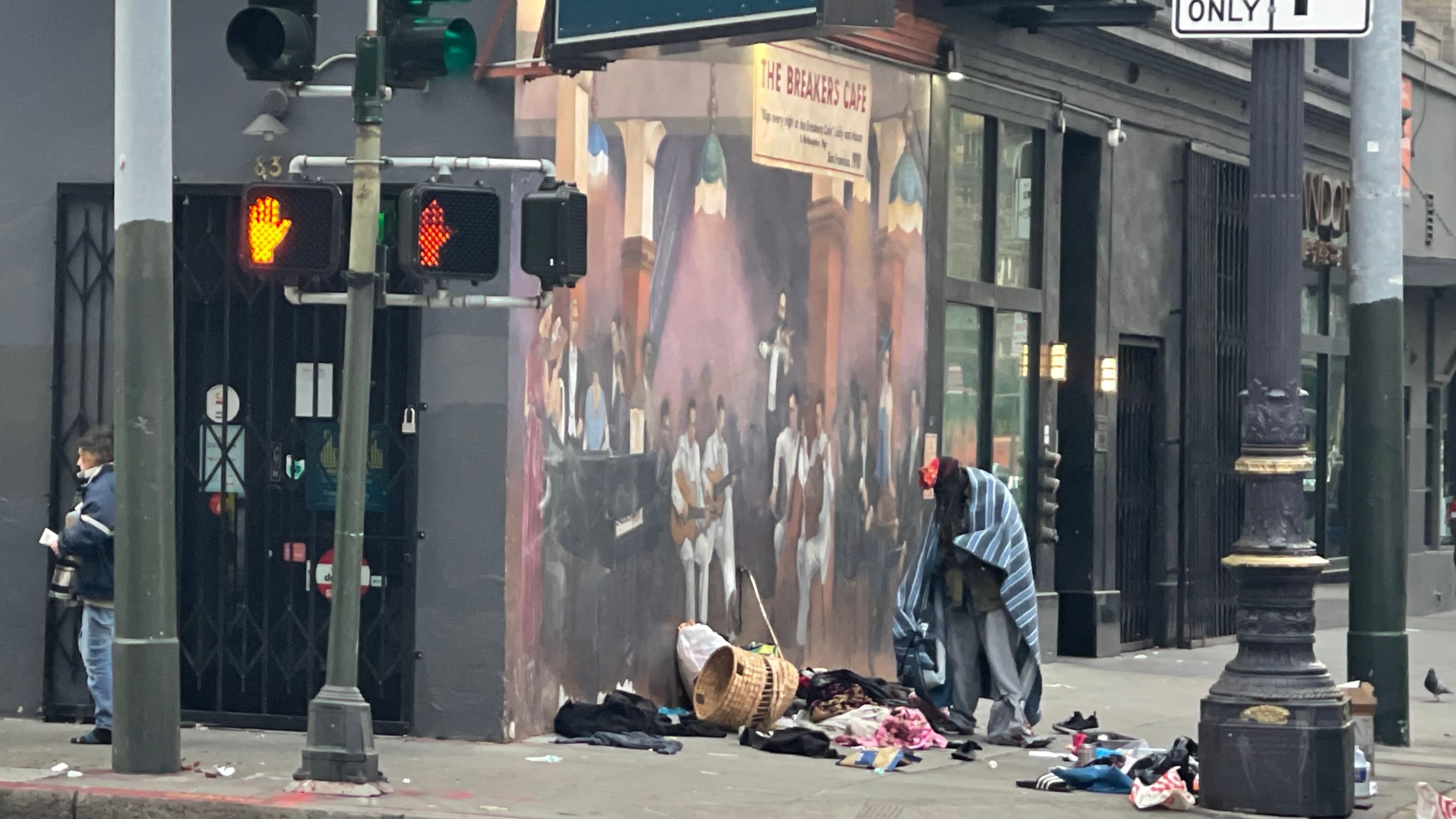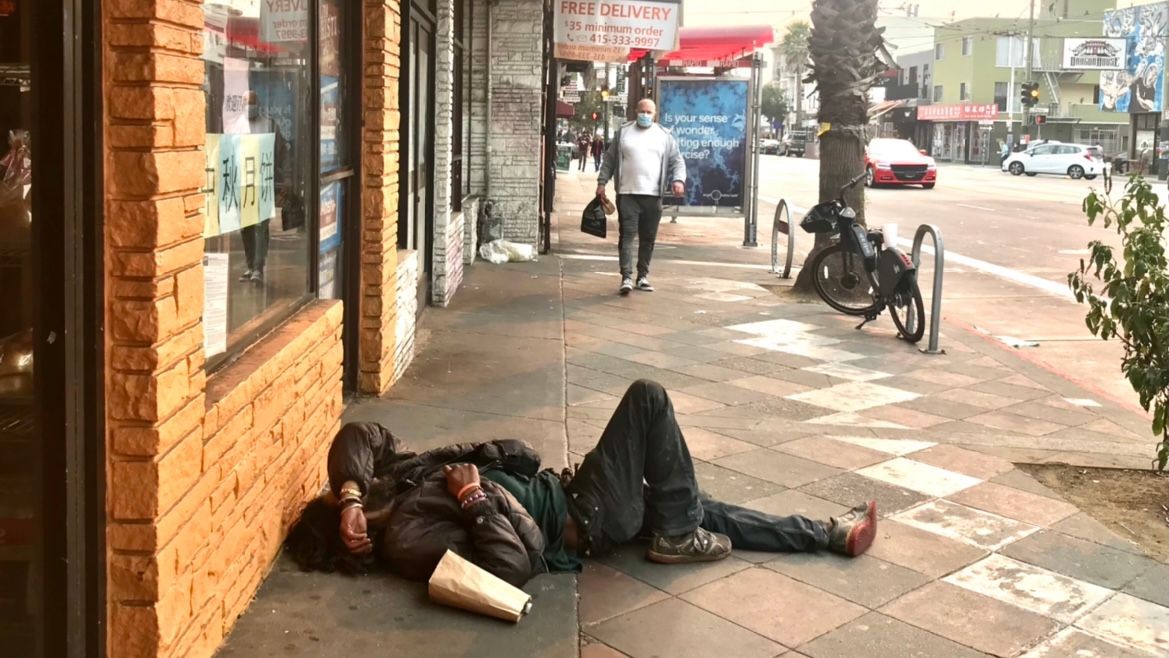Opinion : San Francisco’s drug and homeless crises can’t go on

It’s a strange city that bans plastic straws but permits plastic needles. Yet that’s San Francisco today. Between 2020 and 2022, 1,985 people here have died from drug overdoses compared to 1,143 from COVID-19.
Tomorrow, San Francisco’s mayor, London Breed, will give her annual state of the city address. It is sure to contain references to the city’s virtues but should also confront the issues hurting all San Franciscans: a deserted downtown; the flight of medium and large businesses and major conventions; the highest commercial office vacancy rates of any big city in the US; planning policies that amount to a virtual border wall encircling the city; housing costs that make it prohibitively expensive for all but the wealthy or poverty-stricken; a public school system whose enrollment has fallen and which has only 55 per cent English proficiency and 46 per cent maths proficiency (with a 9 per cent maths proficiency rate for black students); and a police department which is short of 645 officers.
But without tackling San Francisco’s open-air drug markets and homeless encampments, efforts to solve these problems will be fruitless.
Fentanyl, the synthetic drug that is 50 times more powerful than and a fraction of the cost of heroin, has turned many blocks of the city into zombie zones.
Beyond the shocking waste of potential, the drug use and homeless tents consume an enormous part of San Francisco’s annual $13.95 billion budget. Direct city spending on homelessness has risen from about $200 million for the fiscal year 2016 to $680 million this year.
Even this number doesn’t approach the true costs because it fails to include the burden that drugs and homelessness place on the police, fire and public works departments, local hospitals and the judiciary.
None of this has happened overnight — it’s a situation that has built up over decades and to which state and federal policies have contributed.
But much of it is the result of skillful politicking. San Francisco has an elected mayor, but it also has a board of supervisors, representing 11 different portions of the city, each of whom has the power to stymie any mayoral initiative. Less than 9,000 votes can be enough for a supervisor to win — a tiny fraction of the 501,930 registered voters in San Francisco. Thanks to the malleable nature of the city’s term limits, supervisors can occupy a seat for two-thirds of their working lives.

Complicating matters further are the local propositions that appear on every election ballot and which, while portrayed as a way for citizens to keep elected officials in check, are largely controlled by San Francisco’s 11 “district mayors”.
Last November’s election form contained 14 measures — whose language, for the most part, was designed to obfuscate the underlying issues.
One result of years of such measures is the existence of 130 external commissions overseeing dozens of city departments. More corrosive still is a fractured and tribal body politic prone to manipulation by a handful of people who dominate public hearings, issue lawsuits and play the ballot measure pinball machine.
San Francisco’s drug and homeless crises can be solved, but that would mean changes to the mechanics of government and coordinated political will.
Several European cities, including ultra-progressive Amsterdam, have paved the way. It requires the co-ordinated and persistent pursuit of harm-reduction programmes, sufficient public shelters, commitment for treatment for those who are a danger to themselves and others, visible policing, a judiciary that enforces the law and — most of all — a change in the armature of government. That’s how the mayor should propose to build a San Francisco that will be better for everyone.
* Editor’s note: Mr. Michael Moritz's opinion piece was first published on February 8, 2023 in the Financial Times. He submitted his opinion to Wind Newspaper on the same day which was the day before San Francisco Mayor London Breed delivered her annual state of the address.
Mr. Michael Moritz is a partner at Sequoia Capital, which he joined in 1986. He led Sequoia in global technology investing and was one of the co-founders of its business in China and India as well as Sequoia Global Growth, Sequoia Heritage, and Sequoia Capital Global Equities. He has represented Sequoia on the boards of Yahoo, PayPal, Google, LinkedIn, Kayak and Flextronics; and younger businesses, Berkeley Lights, Instacart, Klarna and Stripe. Prior to joining Sequoia, Michael co-founded Technologic Partners and was a correspondent for Time Magazine, where he was the San Francisco bureau chief.
- New leadership at 137-year-old Chinese school explores ways to inspire more students to learn Chinese in San Francisco Chinatown
- In a 52-2 vote, Chinese American Democratic Club endorses to recall Supervisor Engardio as a result of passage of Proposition K
- An amnesty program in San Francisco is back through July 1, 2025 to legalize existing awnings
- Opinion: Political betrayal warrants recall
- Do empty yellow loading zones best serve the San Francisco Chinatown community?
- T&T Supermarket, largest Asian grocery chain in Canada, announces to open at San Francisco City Center on Geary Blvd. in winter 2026
- (Breaking news: Charlene Wang wins in the Oakland's special election) Charlene Wang runs for Oakland District 2 Councilmember on April 15, 2025 to represent Oakland Chinatown
- Mayor Lurie announces plans to support small businesses including First Year Free program waiving fees for new businesses



